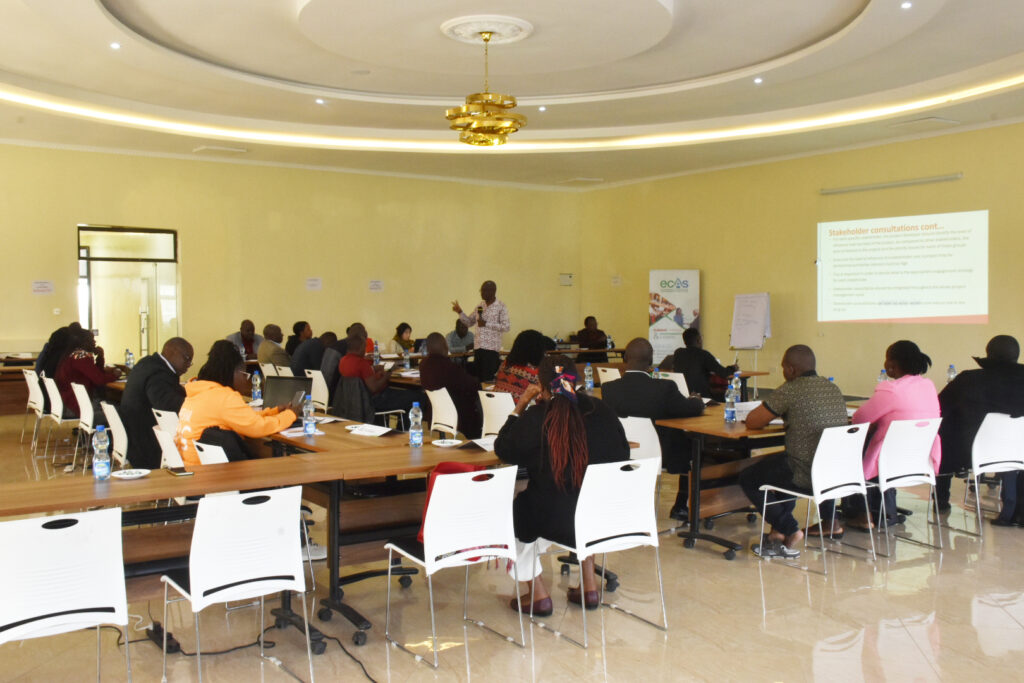
CONCEPT NOTE
INTERNATIONAL TRAINING ON LEADERSHIP AND GOVERNANCE FOR BOARDS AND SENIOR EXECUTIVES
COURSE BACKGROUND
Strong leadership and effective governance are critical for the success and sustainability of any organization. Boards of directors and senior executives play a pivotal role in setting strategic direction, ensuring regulatory compliance, managing risks, and fostering a culture of accountability and ethical decision-making. In an era of rapid change, increasing stakeholder expectations, and evolving governance frameworks, leaders must be equipped with the right skills, knowledge, and tools to drive organizational excellence.
This course, offered under ECAS, is designed to provide board members, senior executives, and decision-makers with a comprehensive understanding of corporate governance principles, leadership best practices, and strategic oversight. Participants will explore key topics such as board effectiveness, corporate ethics, financial stewardship, risk management, and stakeholder engagement. The course will also address emerging trends such as digital transformation, ESG (Environmental, Social, and Governance) factors, and crisis leadership in a complex global environment.
By blending theoretical frameworks with practical case studies and interactive discussions, this program ensures that participants gain insights into governance excellence and leadership strategies that can be directly applied to their organizations. Whether in the public or private sector, this course will empower leaders to navigate challenges, make informed decisions, and drive sustainable growth while upholding the highest standards of governance and accountability.
COURSE OBJECTIVES OF THE TRAINING
This course is designed to equip board members and senior executives with the essential knowledge and skills needed to enhance organizational leadership and governance. By the end of the course, participants will be able to:
- Understand and apply key principles of corporate governance to ensure organizational accountability, transparency, and ethical leadership.
- Strengthen board effectiveness by improving decision-making, strategic oversight, and risk management.
- Develop leadership strategies to drive sustainable business growth, innovation, and stakeholder engagement.
- Enhance financial stewardship and fiduciary responsibilities to protect organizational assets and shareholder value.
- Address governance challenges, including regulatory compliance, crisis leadership, and corporate social responsibility.
- Foster a culture of integrity, ethical decision-making, and organizational resilience.
- Navigate emerging trends such as digital governance, ESG (Environmental, Social, and Governance) frameworks, and global regulatory changes.
- Improve board dynamics, communication, and collaboration to build high-performing leadership teams.
WHAT YOU WILL LEARN
Participants in this course will gain in-depth knowledge and practical insights on:
- The role and responsibilities of board members and senior executives in corporate governance.
- Best practices for effective board leadership, decision-making, and strategic planning.
- Corporate ethics, compliance frameworks, and legal responsibilities.
- Techniques for assessing and mitigating organizational risks.
- Financial oversight, including budgeting, financial reporting, and performance monitoring.
- Crisis management and leadership in times of uncertainty.
- Stakeholder engagement and communication strategies.
- Emerging governance trends such as ESG integration, digital transformation, and sustainable leadership.
DURATION AND PROGRAM
TARGET PARTICIPANTS
This course is tailored for board members, senior executives, corporate directors, and top-level decision-makers responsible for governance and strategic leadership. It is also highly beneficial for government officials, policymakers, investors, and professionals involved in regulatory compliance, risk management, and corporate governance. Aspiring leaders looking to enhance their governance knowledge and prepare for executive roles will also find this program valuable.
TRAINING STYLE
The course employs a highly interactive approach that blends expert-led discussions, peer learning, and real-world case studies. Participants will engage in scenario-based exercises, boardroom simulations, and strategic decision-making workshops to apply governance principles in practical settings. Leadership coaching, panel discussions with industry experts, and role-playing activities will provide insights into best practices and challenges faced by senior executives. Additionally, participants will have access to digital learning resources and governance assessment tools to enhance their knowledge and practical application beyond the classroom.
TRAINING MODULES
This course is structured around six key modules, each designed to provide board members and senior executives with the knowledge, tools, and strategies to enhance governance and leadership effectiveness.
| No | Module | Details | |
| 1. | Principles and Frameworks of Corporate Governance |
This module explores the foundations of corporate governance, emphasizing the roles, structures, and best practices that ensure accountability, transparency, and ethical leadership in organizations.
|
|
| 2. | Strategic Leadership and Board Effectiveness |
Leadership at the board level requires strategic thinking, effective decision-making, and the ability to drive long-term success while balancing stakeholder interests.
|
|
| 3. | Financial Oversight and Risk Management |
Boards and senior executives must oversee financial performance and ensure effective risk management to protect organizational assets and shareholder value.
|
|
| 4. | Stakeholder Engagement and Corporate Responsibility |
Engaging stakeholders effectively and ensuring corporate responsibility are essential for building trust, maintaining reputation, and driving long-term success.
|
|
|
5.
|
Emerging Trends in Corporate Governance |
Organizations must adapt to evolving governance challenges, including digital transformation, sustainability, and diversity in leadership.
|
|
| 6. | Crisis Leadership and Decision-Making Under Pressure |
Boards and executives must be prepared to navigate crises, manage risks, and make high-stakes decisions under pressure.
|
|
GENERAL NOTES
- Training manuals and additional reference materials are provided to the participants.
- Upon successful completion of this course, participants will be issued with a certificate.
- We can also do this as a tailor-made course to meet organization-wide needs. Contact us to find out more: info@ecasiafrica.org.
- Payment should be sent to our bank account before the start of training and proof of payment sent to: info@ecasiafrica.org.
ABOUT ECAS INSTITUTE
The ECAS Institute designs and delivers independent and targeted training, research, and consulting services. Our work focusses on climate change and resilience building, carbon markets, renewable energy, nature-based solution, biodiversity conservation, agriculture and food systems, We are located in Nairobi Kenya and work across the African region. We have implemented training and research assignments in Kenya, Tanzania, Uganda, South Sudan, Somalia, Malawi, Rwanda, Congo, and South Africa. Globally, we have supported our partners from the UK, Denmark, Italy, Sweden, Germany, and USA.

